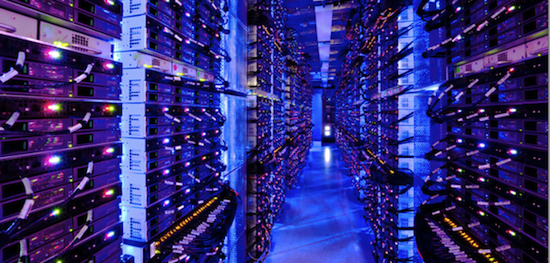
VentureBeat is excited to announce our newest conference: DataBeat 2013.
[aditude-amp id="flyingcarpet" targeting='{"env":"staging","page_type":"article","post_id":713008,"post_type":"story","post_chan":"none","tags":null,"ai":false,"category":"none","all_categories":"big-data,","session":"A"}']DataBeat digs deep into the promise and potential of data. We’re determined to cut through the hype around the term “big data” to discuss the real ways in which smart use of data is driving change. One thing we do believe: Understanding data, and using it quickly and intelligently, will be key to whether your business succeeds or fails in the next couple of years.
We’re holding the event Dec. 4-5 at the Sofitel Hotel in Redwood City, Calif.
If you have a great story to tell about how understanding data made your organization faster, smarter, nimbler, more profitable, or just plain better, then we definitely want to hear from you. If you’re interested, please get in touch.
The inescapable big data hype machine is churning away at top gear. At airports, on television, in magazines, and even on the side of taxi cabs, big data solutions promise something close to nirvana. Data, we hear, is “the new oil.” Everyone, we’re led to believe, is gaining fresh understanding of their business by looking at data in new ways. The truth, of course, is a little more nuanced, and it’s that truth we’re going to uncover at DataBeat.
Data is improving health care, education, and government. Increasingly nuanced analysis of data is transforming logistics and optimizing supply chains. Careful combination of data from multiple sources is improving the targeting of ads. Smart sensors in the power grid, in pedometers, and in urban traffic networks stream vast volumes of data for analysis. In aggregate, these sensors help shape broad national policies for energy, health, and urban planning. At the local level, a new generation of tools use the same sensor data to let individuals make more informed choices about their own power consumption, their health, or their route to work.
Increasing data volume and complexity creates opportunities for existing businesses to become smarter and for new businesses to emerge, disrupting incumbents or pursuing entirely new markets.
At DataBeat, we will move past the current obsession with big data and away from an emphasis on any single tool or technology. Instead, we focus upon the ways in which people and companies are using data to change real businesses and real lives. We will hear from those on the front line who are seeing measurable change driven by their use of data — more profitable products, faster decisions, cheaper processes, stronger communities, better outcomes.
We will prioritize real customer experiences, bringing those with compelling stories to tell onstage in a series of fireside conversations that get to the heart of what worked … and what didn’t. We’ll articulate the ways in which a range of new tools and technologies are transforming the data landscape. We’ll peel back the covers to examine the benefits that more data brings to individuals and consider this alongside the very real concerns regarding erosion of privacy … and the threat of over-reaching government regulation.
[aditude-amp id="medium1" targeting='{"env":"staging","page_type":"article","post_id":713008,"post_type":"story","post_chan":"none","tags":null,"ai":false,"category":"none","all_categories":"big-data,","session":"A"}']
So, if you have a story to tell, let us know. And if you’d like to hear those stories, early bird registration is now open, offering a 25 percent discount on the regular price.
See you in December!
[Image Credit: ZDNet]